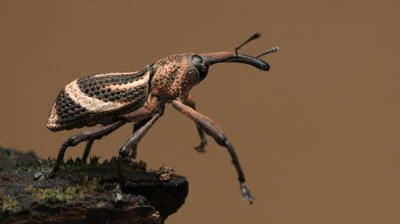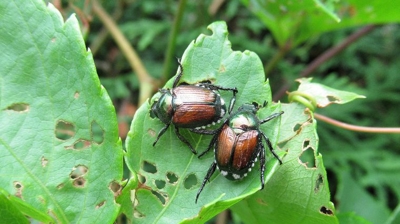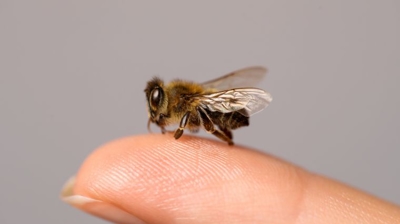
Black Widow Spiders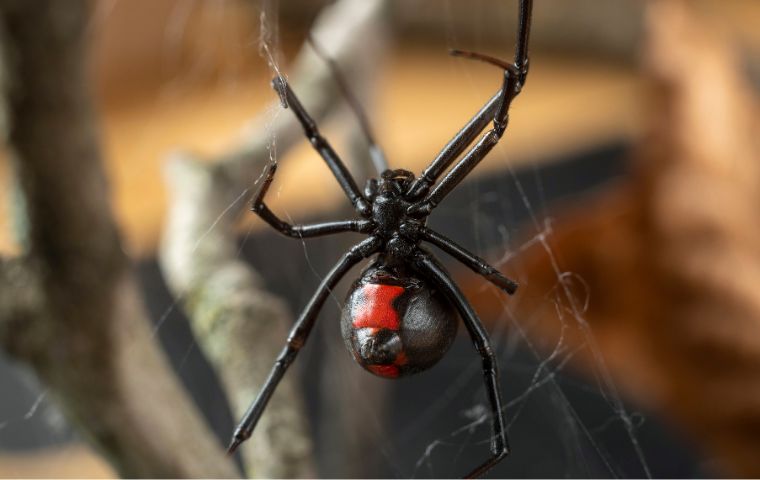
What Are Black Widow Spiders?
Black widow spiders are a group of venomous arachnids belonging to the Latrodectus genus, and they are known for their distinctive black coloration with a red or orange hourglass-shaped mark on their abdomen. These spiders are found in various parts of the world, with the most notorious species being the Southern black widow (Latrodectus mactans) in the United States. To provide a comprehensive overview, let's delve into the key aspects of black widow spiders:
- Appearance: Black widow spiders are relatively small, typically measuring between 1.5 to 1.75 inches in length. They are recognized by their glossy black bodies and the distinctive hourglass-shaped marking on the underside of the abdomen, which varies in color from red to orange or even yellow.
- Habitat: Black widows are commonly found in temperate regions, including North and South America, Africa, and Australia. They prefer dark, secluded areas such as woodpiles, crevices, and cluttered spaces, both indoors and outdoors.
- Behavior: These spiders are known for their reclusive behavior. They build irregular, messy webs in which they capture and consume a variety of insects. Black widows are not aggressive and typically bite in self-defense when they feel threatened.
- Venom: Black widow spiders possess potent venom, primarily designed to immobilize their prey. The venom contains neurotoxins, particularly ?-latrotoxin, which can affect the nervous system of their victims. While their bites are rarely fatal to humans, they can cause severe pain, muscle cramps, nausea, and other symptoms. Vulnerable individuals, such as the elderly or young children, may experience more severe reactions.
- Reproduction: Black widow spiders are known for their distinctive mating behavior. After mating, the female may sometimes cannibalize the male. The female then lays her eggs in a silken cocoon and guards them until they hatch. The offspring go through a series of molts before reaching maturity.
- Identification of Females: Female black widow spiders are the most dangerous, as they have larger venom glands and more potent venom than males. Females are also the ones with the characteristic hourglass marking on their abdomen.
- Control and Safety: To prevent encounters with black widow spiders, it's essential to take precautions such as wearing gloves when working in potential hiding spots, shaking out shoes and clothing, and maintaining a clutter-free environment. If bitten, seeking medical attention is advised, especially if severe symptoms occur.
Black widow spiders are venomous arachnids known for their distinctive appearance, potent venom, and reclusive behavior. While they can pose a threat to humans, bites are relatively rare, and fatalities are even rarer with prompt medical treatment. Understanding their habits and taking precautions can help minimize the risks associated with encounters with these spiders.
Are Black Widow Spiders Harmful?
Black widow spiders (Latrodectus spp.) are widely known for their reputation as dangerous arachnids. There are several reasons why they are considered dangerous:
- Venomous Bite: Black widows possess venom that is neurotoxic. Their bites can cause severe pain and discomfort at the site of the bite, along with a variety of systemic symptoms. While fatalities are rare, severe envenomations can be life-threatening, especially in vulnerable individuals such as the very young, elderly, or those with compromised immune systems.
- Neurotoxic Effects: The venom of black widows contains neurotoxins, including latrotoxins. When injected into a human, it can lead to muscle pain and spasms, abdominal cramping, nausea, sweating, and a variety of other symptoms, collectively known as latrodectism. Severe cases can result in high blood pressure, respiratory distress, and even unconsciousness.
- Painful Symptoms: Black widow bites are exceptionally painful, and the pain often spreads from the bite site to other parts of the body. This intense discomfort can persist for several hours to a few days.
- Systemic Reactions: In addition to pain, black widow bites can lead to systemic symptoms such as fever, chills, headaches, and weakness. These symptoms can be particularly distressing, especially in children and the elderly.
- Allergic Reactions: While allergic reactions to black widow bites are rare, they can occur and, in some cases, may lead to severe anaphylactic responses. Allergic individuals should be especially cautious.
- Secondary Infections: Bites can become infected, especially if they are not treated properly. The venom can also damage tissue at the site of the bite, which may require medical attention to prevent secondary infections.
- Emotional Impact: The fear of black widow spiders can have a significant psychological impact on individuals. The knowledge that a venomous spider can be found in their environment can cause considerable anxiety and stress.
- Economic Impact: Black widow spiders are considered pests in some regions due to their venomous nature and potential to harm humans. Their presence can impact outdoor activities and may necessitate pest control measures, leading to economic costs.
- Preventive Measures: Due to the danger they pose, it is essential to take preventive measures to avoid black widow bites. These measures may include keeping outdoor areas clear of debris, shaking out shoes and clothing before putting them on, and seeking professional pest control if an infestation is suspected.
Black widow spiders are considered dangerous due to their potent venom, the painful and sometimes severe symptoms of their bites, the risk of systemic reactions, potential for allergic responses, and the psychological and economic impact of their presence. While fatalities are rare, their bites should be taken seriously, and immediate medical attention is recommended in case of a bite, particularly in high-risk individuals.
Black Widow Spider Identification
Black widow spiders are easily recognizable due to their distinctive appearance. Here is a detailed description of what black widow spiders look like:
- Size: Black widow spiders are relatively small, with adult females typically measuring between 1.5 to 1.75 inches (3.8 to 4.4 centimeters) in body length. Adult males are smaller, about half the size of females.
- Body Color: These spiders have a shiny, jet-black body, which gives them their common name "black widow." Their body is often glossy and smooth in texture.
- Abdominal Marking: One of the most defining features of black widow spiders is a bright, often red or orange, hourglass-shaped marking on the underside of the abdomen. This marking is a key identifier for black widow species. However, it's important to note that the exact shape and color of the hourglass may vary among different black widow species and even within the same species.
- Web: Black widow spiders construct irregular, messy-looking webs, typically in secluded or hidden locations. These webs are not sticky like those of some other spiders but serve as a place for the spider to rest and capture prey.
- Venomous Fangs: While not visible without close inspection, black widow spiders have two venomous fangs (chelicerae) near their mouthparts. These fangs are used to inject venom into their prey and, if threatened, to defend themselves.
- Sexual Dimorphism: There is a notable difference in appearance between male and female black widow spiders. Females have the distinct hourglass marking and are larger and more robust than males, which lack the hourglass and are generally smaller and lighter in color.
- Leg Structure: Black widow spiders have eight long, slender legs that are usually black or dark brown, matching the color of their body.
- Spinnerets: These spiders have specialized structures called spinnerets at the rear of their abdomen. Spinnerets are used to produce silk for constructing their webs.
- Juveniles: Juvenile black widow spiders often have a more intricate pattern on their abdomen, including yellow or white spots and bands, but as they mature, this pattern becomes less pronounced, and the characteristic hourglass marking becomes more prominent.
Black widow spiders are characterized by their small size, shiny black bodies, distinctive red or orange hourglass marking on the underside of the abdomen, and the absence of other bright markings on their body. These features make them easily identifiable but also serve as a warning of their venomous nature.
Learn more: What Do Black Widow Spiders Look Like?
Black Widow Spider Habitats
Black widow spiders are found in various regions around the world, but their distribution can vary depending on the species. Here are some common places where you might find black widow spiders:
- North and South America: In the United States, black widow spiders are most commonly found in the southern and western regions, but they can also be encountered in other parts of the country. In South America, they are also present in countries like Brazil and Argentina.
- Outdoor Locations: Black widow spiders often prefer outdoor habitats. You may find them in woodpiles, rock crevices, sheds, barns, and other undisturbed, dark, and secluded areas. They can also be found in gardens, especially in and around plant debris or in dense vegetation.
- Indoor Environments: Black widow spiders occasionally make their way indoors. They can be found in basements, crawl spaces, garages, and cluttered areas. Check for them in dark corners, behind objects, and in areas where they can build their webs without disturbance.
- Human-made Structures: Black widow spiders are known to hide in man-made structures such as outhouses, outdoor toilets, and unused sheds or buildings.
- Natural Habitats: In natural environments, you may encounter black widow spiders in rocky areas, caves, and under tree bark. They can also be found near bodies of water like streams or ponds.
- Urban and Suburban Areas: These spiders are adaptable and can thrive in both rural and urban environments, so encounters are possible in various settings.
- Climatic Preferences: The specific types of black widow spiders you encounter may depend on your geographical location and climate. For example, the Southern black widow (Latrodectus mactans) is more common in the southeastern United States.
- Protective Measures: To reduce the risk of encountering black widow spiders, it's advisable to wear gloves when working in potential hiding spots like woodpiles or outdoor storage areas. Be cautious when reaching into dark or cluttered areas and inspect shoes and clothing left outside. Regularly clean and organize indoor and outdoor spaces to minimize hiding spots for spiders.
While black widow spiders can be found in these locations, it's important to note that they are generally reclusive and not aggressive. Encounters and bites are relatively rare, but taking precautions and being aware of their potential presence can help ensure safety in areas where they might be found.
Black Widow Spider Diet
Black widow spiders are carnivorous predators that primarily feed on a diet of insects and other small arthropods. Their hunting strategy involves building irregular, messy webs in which they capture and immobilize their prey. Here is a comprehensive look at what black widow spiders eat:
- Insects: Black widow spiders are opportunistic hunters and will consume a wide variety of insects. Common prey items include flies, mosquitoes, moths, beetles, grasshoppers, and ants. They are known to be skilled at capturing flying insects that become entangled in their webs.
- Arachnids: Black widows may occasionally eat other spiders, including smaller species that get caught in their webs. While they prefer insects, they will not hesitate to consume arachnid prey when available.
- Other Small Invertebrates: In addition to insects and spiders, black widow spiders may consume small invertebrates such as springtails, mites, and even small centipedes or millipedes.
- Cannibalism: Female black widow spiders are known for their cannibalistic tendencies, particularly after mating. In some cases, a female may consume the male spider after copulation. However, this behavior is not exclusive to their diet but rather related to their reproductive biology.
- Silk-Wrapped Prey: When a black widow spider captures its prey in its web, it uses silk to immobilize and subdue the victim. The spider then delivers a venomous bite to liquefy the insides of the prey, allowing the spider to suck out the nutrients.
- Predatory Behavior: Black widows are ambush predators that sit and wait in their webs for prey to become ensnared. They are sensitive to vibrations on their web, alerting them to the presence of potential meals.
- Feeding Frequency: Black widow spiders do not need to eat frequently. They can survive for extended periods without food, sometimes several weeks or even months, as their metabolic rate is relatively low.
Black widow spiders are carnivorous arachnids that primarily feed on insects and other small invertebrates. They use their webs to capture and immobilize prey before consuming it. Their diet is opportunistic, and they are skilled at catching a variety of small creatures that become entangled in their webs.
Learn more: What Do Black Widow Spiders Eat?
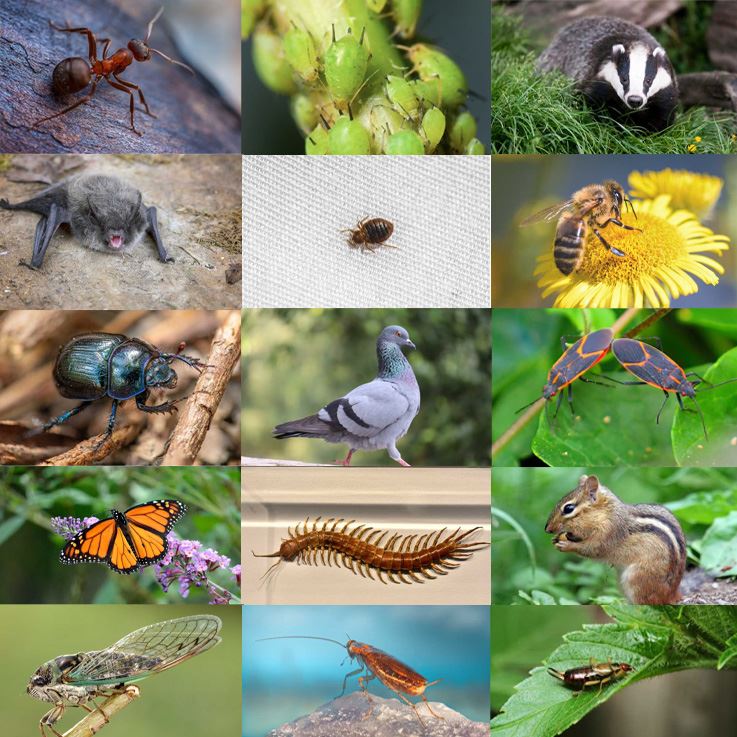
Black Widow Spider Life Cycle
The life cycle of black widow spiders (genus Latrodectus) is a fascinating and intricate process that involves several stages, from hatching as tiny spiderlings to reaching maturity. Here's a comprehensive overview of the life cycle of black widow spiders:
- Egg Stage: The life cycle begins when a mature female black widow spider lays her eggs. She produces a silken egg sac, which is usually cream-colored or light brown. The female carefully guards the egg sac, which can contain hundreds of eggs, and often suspends it within her web or hides it in a sheltered location.
- Spiderling Emergence: After an incubation period of about two to four weeks, the spiderlings (young spiders) hatch from the egg sac. They are tiny and pale in color at this stage. Initially, the spiderlings remain close to the egg sac, where they receive some protection and nourishment from the female.
- Early Instar Stages: As spiderlings grow, they go through a series of instar stages, molting and shedding their exoskeletons as they increase in size. During these early stages, spiderlings disperse from the maternal web and become more independent.
- Juvenile Stage: As spiderlings continue to molt and grow, they enter the juvenile stage. During this phase, they develop more distinctive markings on their abdomens. The juvenile black widow spiders build their own webs, albeit smaller and less complex than those of mature females.
- Sexual Maturation: Black widow spiders are sexually dimorphic, with females being larger and more robust than males. Males mature more quickly than females. Male black widow spiders typically reach sexual maturity after several molts, while females take longer to develop, undergoing additional molting stages.
- Mating: When a male reaches maturity, he actively seeks out a female for mating. Mating can be a dangerous endeavor for males, as females sometimes exhibit cannibalistic behavior. If successful, the male transfers sperm to the female's reproductive organs.
- Egg Laying: After mating, the female constructs one or more egg sacs, which she fills with fertilized eggs. The female carefully guards the egg sacs until the spiderlings hatch, which can take a few weeks.
- Lifespan: The lifespan of a black widow spider varies depending on factors such as environmental conditions and predation risk. Typically, males have a shorter lifespan, often living for several months to a year, while females can live for up to three years or more in optimal conditions. Female black widow spiders can produce multiple egg sacs during their lifetime, contributing to the next generation of spiders. The life cycle repeats itself as the newly hatched spiderlings grow and mature into adults, continuing the species.
Black widow spiders are known for their solitary behavior, and the interactions between males and females are often brief and can be perilous for the males. Female black widows invest more time and energy in reproduction, as they produce and guard the egg sacs, ensuring the survival of their offspring.

Hear From Our Happy Customers
-
"Very Knowledgeable"
The tech that arrived was courteous, professional, and very knowledgeable. He was Great.
- Uerial I. -
"Fantastic & Patient"
Jarvis was fantastic and patient. He answered my questions with an in-depth explanation and addressed all of my areas of concern. Would love for him to be my assigned tech going forward. Well done!
- Yonnette M. -
"Professional & Considerate"
I’m pleased with Miche services. Jarvis came today. Professional and considerate. Thank you!
- Judy B. -
"Wonderful Service"
Wonderful service. Jarvis is great. Took care of everything I needed. Thank you!
- Henry P. -
"Great Communication"
Tech was on time, communication was great, and he accommodated my needs.
- Alonzo W. -
"Exceeds Expectations"
I can’t say enough positive things about this company... The tech that came out, Jarvis went above and beyond my expectations. Thank you guys, I will continue using your services.
- Jake M.

